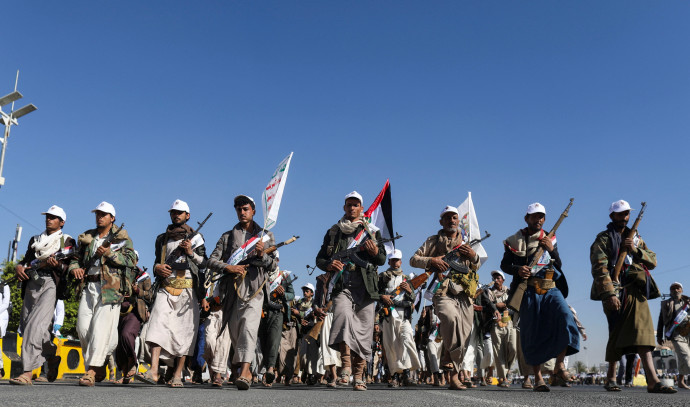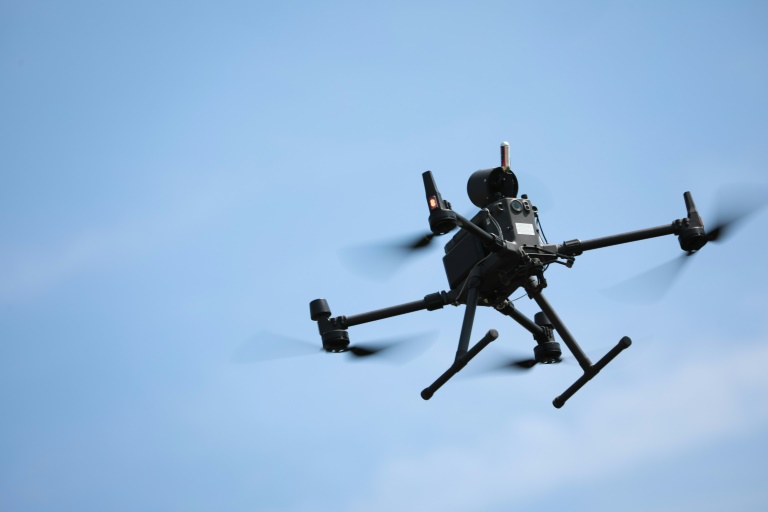Early Saturday morning, a ballistic missile fired from Yemen hit the midst of a residential area in Jaffa, leaving 16 civilians, Jews and Arabs alike, injured.
As seen from the footage of the aftermath, had the missile fallen only a handful of meters in any direction, it would have resulted in a much more dire situation, potentially killing dozens.
This attack came a mere 48 hours after another ballistic missile was launched from Yemen into Israel, which led to the partial destruction of a school in Ramat Gan, although there were no casualties.
Despite successful retaliations from Israel, the US, and other allies, which reportedly targeted ports, tugboats, oil installations, and missile warehouses in Hodeidah, Ras Issa, and Sanaa, the issue of the threat from Yemen remains.
The Yemeni capital of Sanaa has been controlled for more than a decade by the Ansar Allah organization, also known simply as the “Houthis.”
Their slogan – Allahu Akbar, death to America, death to Israel, curse on the Jews, victory for Islam – leaves little doubt about the group’s antisemitic ideology.
Even in the context of the current war, as early as October 18, 2023, less than two weeks after the October 7 massacre, a decision was made in Sanaa (or perhaps more accurately in Tehran) to join the multi-tiered war against Israel, not only by firing long-range missiles but also by terrorizing international trade in the Red Sea.
Since the beginning of the Israel-Hamas war, the Houthis have launched over 130 attacks in the crucial international shipping waterway.
Today, it has become common knowledge that the Houthis are a Shi’ite sect supported by Iran, like many terrorist organizations throughout the Middle East that effectively serve as the “shield” of the Islamic Republic.
The Houthis are different
However, at the same time, it is also necessary to emphasize the difference between the Houthis and Iran’s other arms in Israel’s vicinity.
In Iraq and Lebanon, there are armed militias, some of which take an active part in local government but do not wield control of their respective countries and have never pretended or aspired to do so openly.
This is not the case when it comes to the Houthis. The Houthis in Yemen are not an organization within the state like the pro-Iranian militias in Iraq, nor a party within the government like Hezbollah.
The Houthis are the state; they speak on behalf of the Republic of Yemen and the Yemeni people, they call their military “The Yemeni Armed Forces,” they enact laws, and they force their oppressive rule in areas under their control – including Sanaa and the important port city of Hodeidah.
Even if their control is not absolute over the entire country due to pockets of resistance, this is no different from other countries that are embroiled in conflicts with separatist groups, such as Syria under former leader Bashar Assad or even Ukraine with pro-Putin forces driving separatists from within.
The implication of such an insight is simple: Ansar Allah is not a radical terrorist organization that fires ballistic missiles at a faraway country or dangerously disrupts trade in the Red Sea. It is a rogue state that declares war on other countries unprovoked and imposes its terror on international trade.
This simple yet unspoken notion has immense repercussions, which Israel may have to learn to accept and address.
A complicated matter
The matter is more complicated since there is another government in Yemen based in the southern part of the country, which enjoys broad international legitimacy, even though it controls neither the capital nor the armed forces.
There are also further separatist forces in Aden, which aspire to establish their own state of “South Arabia.”
However, there is no shortage of historical precedents for changes of government that earn legitimacy from international forums.
Afghanistan, for instance, is currently ruled by the Taliban following the hasty US withdrawal from the country in 2021.
Although most countries have not yet recognized the new regime, and although the UN General Assembly has called for not recognizing it, more and more countries are slowly doing so, even if only de facto, for example, by accepting ambassadors on behalf of the new administration.
This can happen in unexpected places: in September, the UK decided to close the Afghan embassy that operated on behalf of the ousted Western-backed former government, and it seems soon enough, in the name of pragmatism, more countries will begin to openly recognize the Taliban.
Another example of this is the 1971 UN vote that essentially declared China’s representative at the UN was not the Republic of China (ROC), which currently controls only Taiwan, but the People’s Republic of China (PRC) – a situation that continues to this day and which paved the way for communist China’s integration onto the international scene.
Every situation is different, and no perfect parallels exist in such a situation, but perhaps Israel should consider leading a line of discourse that insists the Houthis are not merely an antisemitic and oppressive organization but a pariah state that poses a danger to the stability of the region and endangers the entire global economy.
The Islamic Republic of Iran carefully crafted a strategy that warned its loyalist militias to refrain from acting as recognized states on the international stage.
This was done as a means to avoid scrutiny and accountability and as a way to make the aggression against Israel even more complicated, as it does not face ‘organized’ nations in the Western sense of the word but rather fragments of countries embedded in the local population.
A line of discourse arguing that the self-described Republic of Yemen has declared war on Israel unprovoked certainly involves ramifications in terms of international law, the right to self-defense, and other measures that should be left for law experts to scrutinize – but would also challenge Iran’s deliberate strategy of a non-state proxy war against Israel.
Countless analytical and interpretive articles have already described how deterrence against the Houthis must rely on a different perception of reality since this is a remote and poverty-stricken country that, in any case, has only what to gain from firing missiles at Israeli civilians.
Perhaps a mindset that steps outside the box, refuses to see the Houthis as an organization, and begins to view them as a state, as they themselves claim to be – could help pave the way for addressing the Houthi problem through the appropriate international channels?







